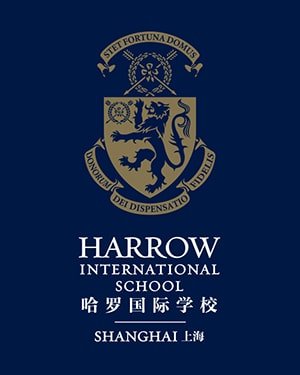The Harrow Shanghai community is a close one. Around 500 children from about 350 families come to us from the four corners of Shanghai. They are generally academically able; most children learned English as a second or even third language, though are mostly very capable indeed (English scores are well above UK averages at all levels); and have a wide range of cultural backgrounds, though most have a Chinese cultural heritage.
Families have high expectations but are very supportive and committed to the school. We are an exceptionally open community, believing that relationships are the core of everything in life, and so we develop strong connections to our families through communications and events that draw parents, grandparents and wider families into our school.
Shanghai is an exciting, rapidly changing and developing city. It is a city that doesn’t sleep and it will not be long before you see for yourself the strong work ethic of the Shanghainese. Shops close later and working hours of surgeries and other services are longer than you would find in many places. The city is future-orientated, international and open- minded, and this makes it a fantastic and vibrant place to live.
The Huangpu River divides the city into two parts. These are called Pudong and Puxi. Pudong is to the east of the river (“dong” means east in Mandarin) and Puxi is to the west (“xi” means west). The Bund looks across the Huangpu River from Puxi to the gleaming, high-rise towers of Lujiazui in Pudong, the city’s commercial centre. Harrow Shangai is in Waigaoqiao, conveniently close to Pudong International Airport (PVG, 30 minutes), Disney World (30 minutes), Lujiazui (30 minutes) and other attractive areas.
Our teachers can choose where to live: most choose the open, leafy and family-friendly area of Waigaoqiao, which is where you will find the school. But others choose to live in Lujiazui, Huangpu, Jing’an and Xuhui, in the heart of the city.
Travelling around the city is very cheap. A metro journey of an hour will cost 5RMB (approximately 50 pence) and a taxi ride to the airport will cost between 120 and 200 RMB. To make life even easier, there is also Didi (similar to Uber) and this is hugely cheaper than in the UK.
Shopping in Shanghai is something else. It includes the street markets selling tourist souvenirs and antiques, all the way to Louis Vuitton, Chanel and Hermes. Uniqlo, Muji and IKEA are also in everywhere. Most staff do their grocery shopping online. ‘Epermarket’ is very reliable and is a well- stocked grocery delivery services. Delivery is very cheap, if not free, when you spend over a certain threshold, and the variety of stock on offer is impressive.
The Chinese have really taken to shopping online, and Shanghai is home to the biggest online store in the world, Taobao. Think of eBay and Amazon on steroids and you are on the right lines. For the most part, Shanghai is a cash-free city where you pay for most day-to-day goods using a WeChat or AliPay app on your mobile phone. WeChat is similar to WhatsApp – only you can run your entire life through it!
